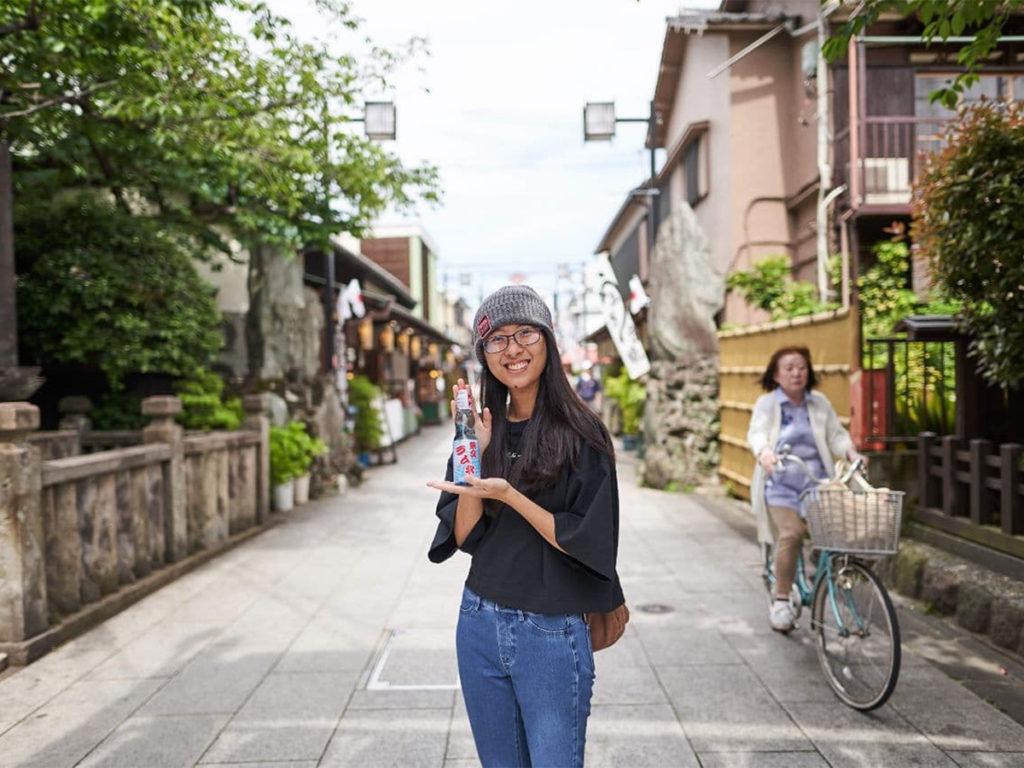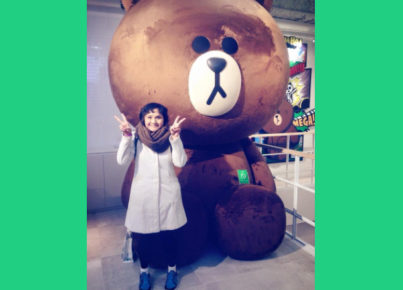“Challenges and Opportunities: A Reflection on COVID-19’s Effects”
Loh Jonina
University student (Global Studies Major, Minor in Japanese Studies and Geographical Information Systems)
Singapore
Sequestered away in relatively sheltered Singapore, it took a while for the COVID-19 pandemic to leap from news articles about a virus that we knew little about from a country located miles away, into a significant threat that drastically changed our daily life. I felt the effects of the pandemic slowly at first, and then all at once. The trickle of early warning signs came in the middle of my semester at university when classes rapidly dwindled in numbers as exchange students were called back home. Several weekly lectures became recorded webcasts as restrictions limiting the size of gatherings were implemented. I was staying in a residential college on campus at that point earlier this year. But apart from these changes, life went on as normally as it could. Then in April, the Prime Minister announced a nationwide partial lockdown, otherwise known as a ‘circuit breaker’. I remember having to make the decision to move back home overnight to avoid having to stay on campus indefinitely throughout summer.
The ensuing months spent at home adjusting to working from home and hanging out with friends on virtual platforms were interesting, to say the least. In the middle of the circuit breaker, I applied to intern at the Urban Redevelopment Authority of Singapore. I worked remotely from my bedroom for the entire duration of the internship – I got to know my mentors over Zoom calls and Skype messages, rather than chats over lunch. Instead of chats at the water cooler, numerous emails, online meetings and seminars became a mainstay of my internship experience. While it made easing into the internship more difficult, there were certainly many benefits to working from home. I saved time, energy and money by not having to commute to work and managed to juggle attending university classes at the same time. I am sure many people will agree that there is a certain satisfaction in being able to wake up a mere five minutes before class or work starts and not having to worry about being late or my appearance.
This pandemic presented many challenges to my lifestyle, but it also offered more opportunities to. Together with a group of friends from the residential college, we initiated a thrift shop with the objective of minimizing waste in the community. Prior to the pandemic, we used to collect donations of clothes and books from anyone we could reach out to, sort through them and set up a physical thrift shop once a semester outside our residential college. Instead of dictating how much an item cost, we encouraged people to pay as they wished so that financial cost would not be a barrier to participating. Often times, sustainability concerns among customers have not translated to large-scale uptake from purpose-driven initiatives because they usually demand a price premium that not everyone is willing pay for or can afford. We ran our thrift shop as a non-profit, donating all proceeds to fund a youth-led expedition to install solar panels in Vietnam. Ever since restrictions were placed on gathering sizes, events like ours naturally could not take place anymore. Instead of giving up on the initiative, my friends shifted the thrift shop online, where it is now a Telegram channel where people can post items they wish to sell and settle their exchanges in their own time and way. The thrift shop is no longer constrained by location and time as a physical event. Even more thankfully, we now do not need to devote any time and energy to collect, sort and display items. To date, our small thrift shop has become a mini circular economy where people have the option of giving their pre-loved items another home instead of throwing them away. While our initiative is run as a non-profit, I envision that business ingenuity can unlock more sustainably run circular businesses in the future.

Speaking of the circular fashion businesses, COVID-19 has shown us just how fragile global supply chains have become, making the argument for more local circular economies even more compelling as a form of resilience. People have also started to reevaluate their consumption habits in the wake of the economic downturn and the recovery period. Very rarely do we get such a shock to the system that encourages people to think about how they can change it for the better. One thing I realized while sourcing for alternative ways to dispose of the leftover clothes from our thrift shop was that textiles are very unpopular in recycling because fibers are simply too difficult and resource consuming to reuse. The solution should not be to produce more clothes and incinerate old ones but to reduce overall consumption and make clothes to be recycled – fibers that can be dyed multiple times and separated easily. As experts warn that we will not be returning to normalcy anytime soon, the end of this pandemic still seems far away. What does the longing for a clean ending to this crisis mean for the tales we tell about the larger ongoing existential threat that we face – climate change? Our shared climate narrative did not end with the Paris Agreement, nor did it decline with the announcement of the 17 Sustainable Development Goals. I hope that we can emerge as victors rather than victims of the climate crisis. If you are reading this essay and wondering what you can do to change the future as a young person without much experience or resources, I wholeheartedly urge you to apply for the next volume of Toshiba Youth Club Asia. Looking back on the short but fruitful time I spent in Japan attending TYCA years ago, I remember the sense of empowerment I felt when my youth was not looked down on as reeking of naivety and ineptitude, but depended upon as a source of power for the next generation of leadership to solve problems in the future. I sincerely hope that you will be able to experience that for yourself.
比較的保護されたシンガポールからは遠い存在であったCOVID-19パンデミックが、何マイルも離れた国から来たほとんど未知のウイルスについてのニュース記事で国中を埋め尽くし、私たちの日常生活を大きく変える重大な脅威へと飛躍するまでには、しばらくの間がかかりました。私はパンデミックの影響を最初はゆっくりなものであると思っていましたが、その後一気に感じるようになりました。早期警戒の兆しが見え始めたのは、大学での学期の途中で、交換留学生が帰国するにつれて授業の数が急速に減っていったときでした。集会の規模が制限されるようになった時、毎週の講義の中には、録画されネット配信されるようになったものもありました。私は今年の初めに、キャンパス内の学生寮に滞在していました。しかし、それ以外は普通に生活していました。そして4月になって、首相が全国的に、一部に対してのロックダウンである、通称「サーキットブレーカー」を発表しました。夏の間、無期限にキャンパスに滞在することを避けるために、一晩で実家に帰る決断をしなければならなかったことを覚えています。
それからの数ヶ月間は、自宅で勉強をしたり、ネット上で友達と遊んだりしていましたが、控えめに言っても面白かったです。サーキットブレーカー発令中に、シンガポールの都市再開発局でのインターンに応募しました。インターンシップの期間中、私は寝室からリモートで仕事をしていました 。昼食を食べながら親交を深めるのではなく、Zoomやスカイプのメッセージでメンター(アドバイザー)と知り合いになりました。給湯室でのおしゃべりの代わりに、多数の電子メール、オンラインミーティング、セミナーがインターンシップの中心になりました。これまでにない環境の下、インターンシップに慣れるのに苦労しましたが、在宅勤務には多くのメリットがありました。通勤の必要がないので、時間、エネルギー、お金の節約になり、大学の授業との両立もできました。多くの人が、授業や仕事が始まるわずか5分前に起きて、遅刻や身だしなみを気にする必要がないことに満足しているのではないでしょうか。
今回のパンデミックは、多くの課題をもたらしましたが、それだけではなく、より多くの機会を与えてくれました。私たちは、大学の友人たちと一緒に、地域のゴミを最小限に抑えることを目的に、リサイクルショップを始めました。パンデミックが流行する前は、多くの人たちから衣類や本の寄付して頂き、整えた後、学外で対面のリサイクル・ショップを学期に一度立ち上げていました。価格が参加への障壁にならないように、商品の値段をこちらが決めるのではなく、お客さんに好きなようにお金を払ってもらうようにしました。お客さんが抱いている持続可能性への関心が、大規模な取り組みへと変わってく訳ではありません。なぜならば、多くの人が払いたくないと思っている価格や、経済的に払えない価格に対して、優越感を覚える人もいるからです。私たちは非営利団体としてリサイクルショップを運営していますが、その収益はすべて、若者が中心となってヴェトナムにソーラーパネルを設置するための団体に寄付しています。集まる人数が制限されるようになってからは、当然ながら私たちのようなイベントはできなくなりました。私の友人たちは、この活動を諦めるのではなく、今ではネット上のアプリを使ってオンラインリサイクルショップを運営しています。そこでは、売りたいものを投稿して、買いたい人達と自分たちのペースで交渉を進めることができます。オンラインリサイクルショップでは、場所や時間などの物理的な要素に縛られなくなりました。さらにありがたいことに、商品の収集、選別、陳列に時間と労力をかける必要がなくなりました。今日まで、この小さなリサイクルショップは、小さいながら循環型経済のしくみを実践しています。そこでは、人々が愛着のある商品を捨てるのではなく、別の家で役立ててもらうことができるのです。、私たちの取り組みは非営利団体として運営されていますが、将来的には、ビジネスの工夫次第で、より持続可能な循環型ビジネスが生まれてくるのではないかと考えています。

循環型ファッションビジネスといえば、COVID-19は、世界的なサプライチェーンがいかに脆弱なものになっているかを示しました。それは、地域に根付いた循環型経済が逆境を跳ね返す力を持つ存在であるべきだ、という議論を巻き起こしています。また、景気後退をきっかけに、人々は消費習慣を見直すようになりました。より良い暮らしのために何ができるのか、を考えさせられるような、現行のシステムに衝撃を与えるような出来事はめったに起こるものではありません。リサイクルショップの売れ残りの服を何とか処分しなくていいような方法を探っていて気付いたことがあります。それは、繊維は再生利用が難しく、再利用するにしても資源を消費するため、リサイクルには不向きだということです。解決策としては、服の生産量自体を減らし、古くなったものを焼却しなくてすむようにすることです。また、全体的な消費量を減らし、リサイクル可能な服を作るのも有効でしょう。 再生利用のためには、何度も染色可能で、分解も容易にできる繊維を使用することです。
専門家が、すぐに元の状態に戻ることはないだろうと警告しているように、このパンデミックの終わりはまだ遠いように思えます。この危機をすっきりと終わらせたいという願いは何を意味するでしょうか?私たちは、気候変動という現在進行形であり、より大きな脅威に直面しています。気候変動の脅威は、パリ協定でスピーチをしたから終わった訳でもなく、17の持続可能な開発目標を発表したから弱まった訳でもありません。私は、私たちが気候危機の犠牲者ではなく、勝者になれることを願っています。このエッセイを読んで、経験も資源もない若者が未来を変えるために何ができるのだろうか、思った人は、ぜひ次回、東芝青年部アジア (TYCA) に応募してほしいと思います。私は、数年前にTYCAに参加しました。日本での短いながらも実りある時間を振り返ってみると、「若さ」が青臭く経験不足なものとして見下されるのではなく、次世代のリーダーが未来の問題を解決するためのパワーの源として頼りにされているものであると心底感じたのを覚えています。ぜひ、そのことをご自身の目で確かめていただきたいと思います。








